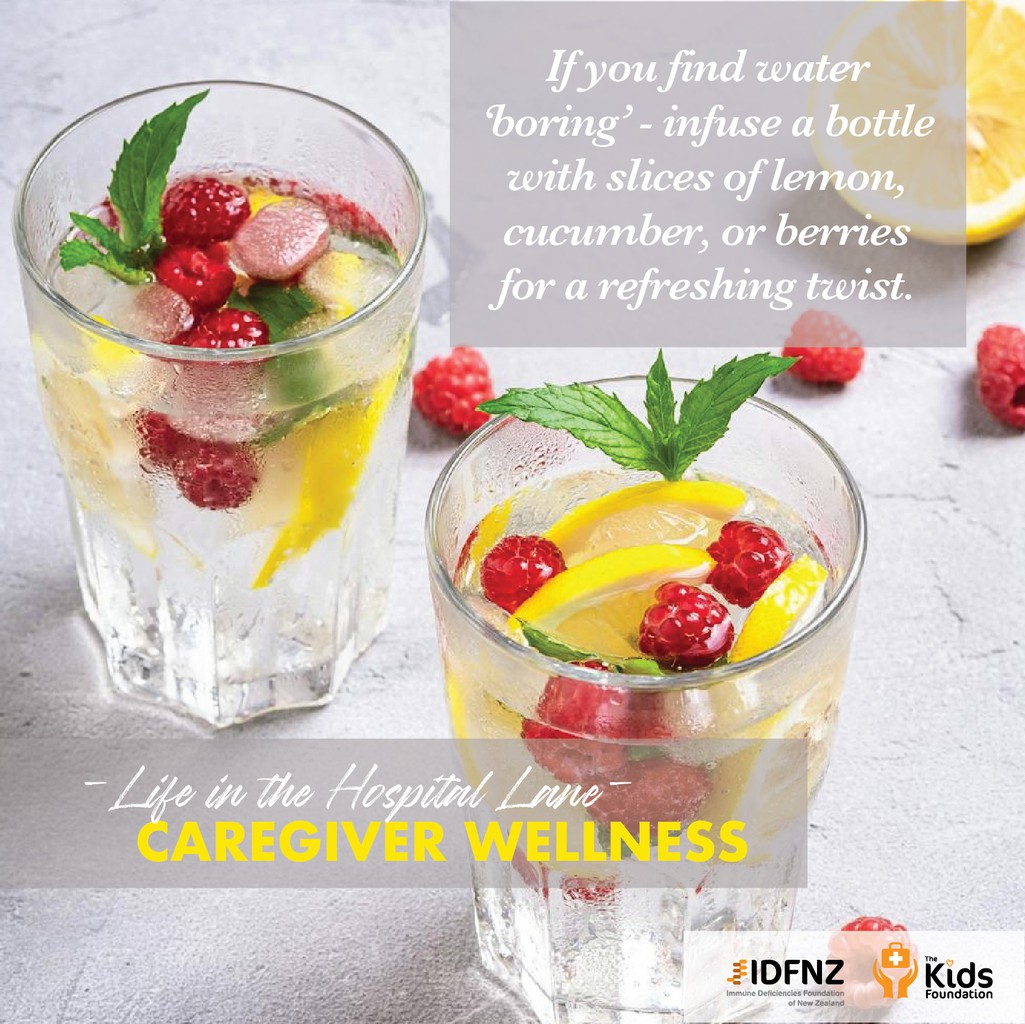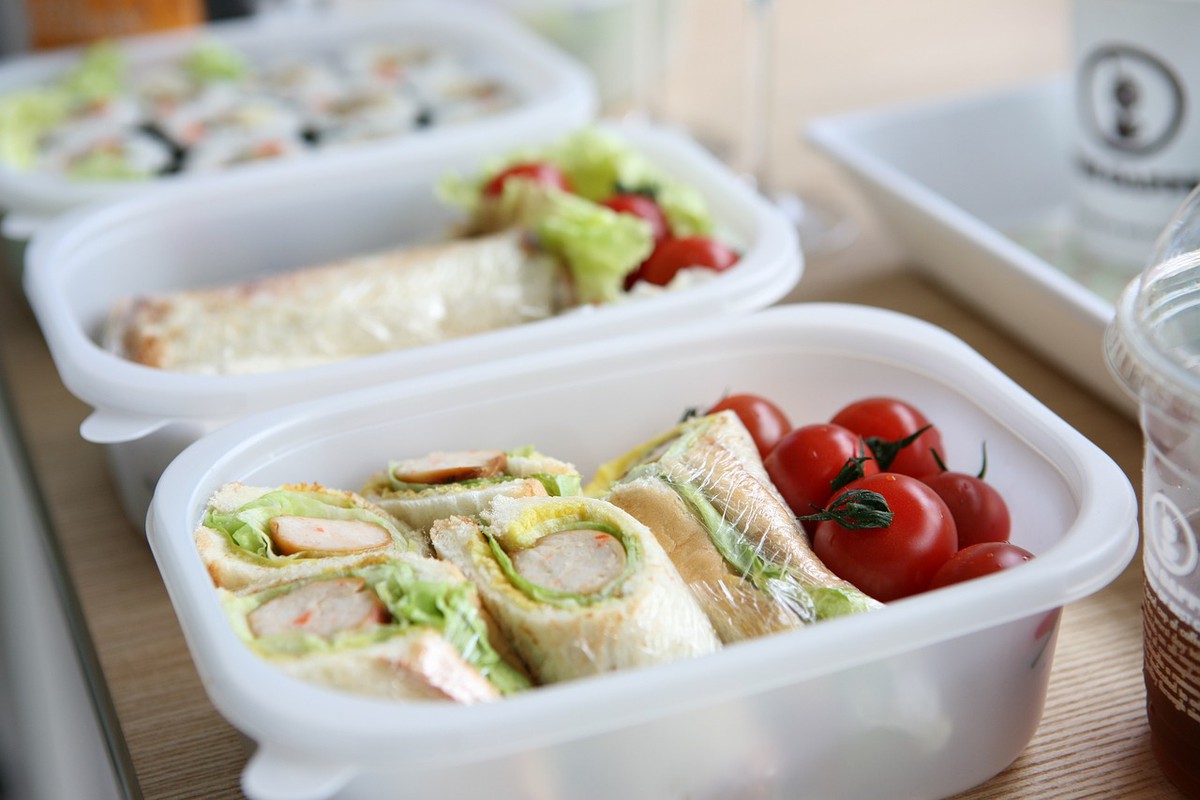Life in the Hospital Lane – Caregiver Wellness; Nutrition and Exercise
Wed Sept. 11th 2024

If you find water 'boring' - infuse a bottle with slices of lemon, cucumber or berries for a refreshing twist.
Caring for someone else, especially your own child, can often mean caring for yourself comes well down the list. There’s so much to plan for, and so much to think about, and your number one priority is getting your child back to full strength. Amidst the worry and constant attention required for your child, it's easy to neglect your own health and well-being. Long hospital stays can also leave you emotionally and physically drained.
To add to this, nearly every day, we're bombarded with new dietary advice from various sources—magazines, friends over coffee, or even well-meaning ‘experts’ in the hospital hallways. With topics ranging from fats, gluten, and dairy to sugars, gut health, and omega-3s, the sheer volume of information can be overwhelming. It can feel impossible to keep up with which foods are beneficial and which might harm our health. However, keeping yourself well, and doing your best with nutrition and exercise during a lengthy hospital stay will ensure you have the energy and resilience needed to support your child effectively. You don’t need to aim for perfection, but small changes and improvements will be hugely beneficial in the long run.
Stay Hydrated: Drink Plenty of Water
Hydration is fundamental. Water helps maintain energy levels, supports digestion, and keeps your mind clear. Hospitals often have air conditioning systems that can leave you dehydrated a lot faster than your home environment. The long-held belief that you need at least eight glasses of water per day is in fact a myth. Individual factors like body size, climate, and how much you sweat determine how much water you need.
The human body is beautifully designed to let you know when you need to drink. Pay attention to those cues and drink when you are thirsty. Carry a reusable water bottle and refill it regularly. Our body functions best when it is hydrated, and it makes sense to hydrate with water, rather than sugary drinks and empty calories. Staying well-hydrated also helps you to distinguish between actual hunger and thirst.
Staying hydrated also helps combat fatigue and headaches, which are common in stressful environments. If you find water ‘boring’ - infuse a bottle with slices of lemon, cucumber, or berries for a refreshing twist to change it up a bit.
Planned Food Choices: Think Before You Eat
Hospital cafes and vending machines often offer convenient but less nutritious options. Instead of grabbing the first thing you see, take a moment to plan your meals. Look for fresh, whole foods like salads, fruits, and lean proteins that will keep you full longer.

Hunger vs Boredom and Emotions
Evaluate your hunger before eating. It doesn’t need to be an in-depth assessment, just a quick thought; ‘am I actually hungry, or am I just bored/stressed/sad’? Hospitals can be monotonous, stressful, or upsetting places. Eating out of boredom, or as an emotional response is very common. If you struggle with this, consider keeping a journal, or using an app to track your hunger levels and eating patterns.
